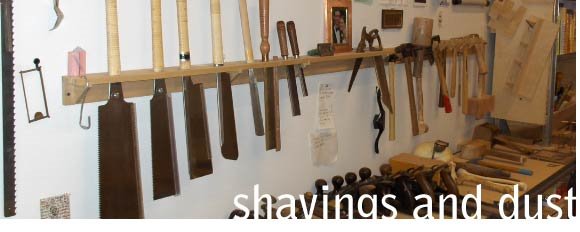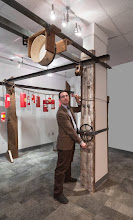we move every three years. The first three times we moved, though, it was in the same borough, we were just changing neighborhoods, which reduced the trauma slightly. The biggest move was three years ago, when we moved to Providence. Now we are gearing up for the biggest one yet, a move away from the coast for the first time as a couple, as well as a move away from being childless and into parenthood.
It is safe to say that I feel awash in a turbulent sea of change.
There is another move that is happening, a move from being a maker to being a teacher (and, perish the thought, an administrator). I love teaching. It really is what I do best, I think. My father is a teacher, and has been since I can remember. My mother is a teacher and has been since before I was born. Recently, in an effort to place the names of some of the long-lost high school folk who have been friending me on facebook, I brought back from my folks’ house my high school senior year yearbook. Because I am a narcissist, I read a lot of the things that people had written. Lot of the run-of-the-mill “Stay in touch” and “Drama Class Rocks!” Probably not too different from your yearbook. Probably the hairdos were taller in mine than in yours. I would bet that there were a lot more mullets. But the things that people wrote are the same across the country, I bet.
One thing I did notice, though, was that a lot of people said something like “you’re a great teacher.” This struck me, as I do not remember teaching anyone anything in high school. Except maybe how to roll a joint. I don’t remember knowing enough about anything to think that I should be a teacher. I wanted to be a rock-and-roll roadie at the time. So it is a bit of a mystery, but it struck a chord with me because I do aspire to be a good teacher. I am looking forward to having the opportunity to meet and work with the students in Syracuse.
Before I can start that life, though, I have to pack up my studio. I am almost done. I know that I will not really have an opportunity to make things on the level that I have been for quite some time. This has been tough for me to parse. I know I am moving into so many things that are going to be so good, but dismantling my workbench took a great deal of will. It was anticlimactic, of course. Four screws and four bolts and it was leaning against the wall, ready to go on the truck. There was no crashing of the pipe organ, no thunderstorms or rains of frogs. Externally the moment after was the same as the one before. But it was the act that officially indicated that I was no longer an active part of the studio. I have had a great time in this studio, the people are all people that I respect and admire and above all like very much. Dismantling my bench was a statement that I am no longer one of them, I now (for the moment) merely store my stuff among them.
Oof.
Below is a photo of the bench leaning against the wall behind the stacks of boxes of studio stuff. Tools, hardware, bits of wood, clamps. The box of hammers does not seem any dumber than the box of saws, no matter what colloquial wisdom indicates. The studio books are just as heavy as non-studio books. I have kept out a small collection of tools that will get me by should I have a small quick project, but all the rest are sleeping soundly in their boxes, waiting to see the sun and breathe the air and make shavings and dust in their new home.

I know I should be thinking about this as preparation for a great and good change. I know that I should be looking forward to what promises to be an exciting new time, professionally and personally. But just now, for these weeks before we get up there, I do not seem to be able to shake the melancholy. I am awash in memories, stuck looking back. And I am going to allow that for now. I do not have any choice. It is right to mourn for a time the passing of good things just as it is right to be thankful for the good things that are to come.


